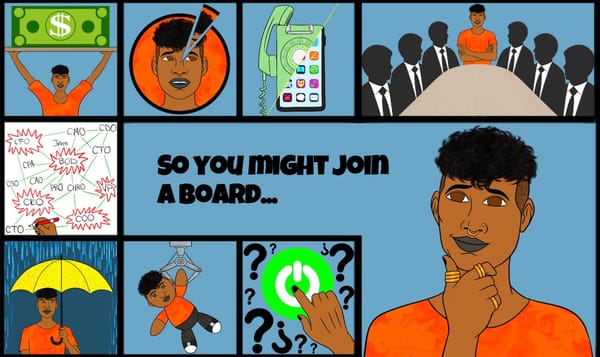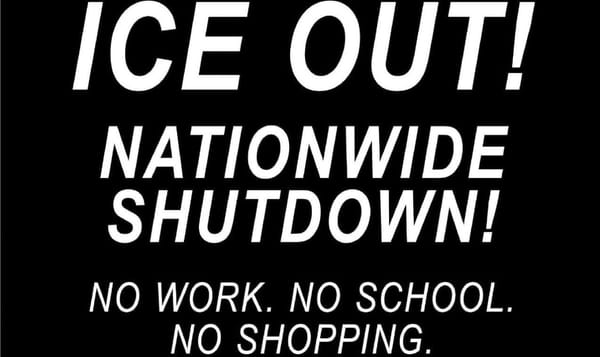talk less, listen more
when was the last time a panel of know-it-alls solved anything?

There are so many ways to solve a problem. And Seattle seems to have a lot of problems these days! Here's a big one: most of our elected officials are center-right politicians. They lead a city with a lot of center-left to really-left residents. Their decisions can be, let's say, wrong. Oppressive. Discriminatory. Harmful. But one of the things I love about Seattle is how vocal we are.
When police were raiding gay bars under the state’s draconian liquor laws, we spoke up until they changed it. Last year, the mayor and parks department tried to close one of Seattle's only queer nude beaches. Protestors clogged public forums for months (and are still fighting!) until they heard us and backed down. Our currently-elected officials don't always take public opposition to heart. Last fall hundreds of people argued against laws we all knew were discriminatory. That fight was not yet successful. And as predicted, the laws haven't made anyone safer.
Gun violence is a serious issue in Seattle. People across the city are sharing their concerns about safety. Gun violence usually rises as temperatures do. It makes perfect sense that local officials would convene community forums. They'd want to hear from their constituents and neighbors, right?
a few rotten forums
Councilmember Rob Saka's district represents West Seattle. A recent forum he hosted drew more than 100 people who wanted to speak to people in power. But the only people speaking were the ones he invited–the ones sitting at the long table at the front of the room. I counted 8 speakers who kicked off the night with their own speeches. It was Saka's chief of staff, then Saka, then the city council president, then the police chief. Soon the audience heard from the heads of the parks department and the public utility. These folks spoke for so long that the forum left only 10 minutes to answer pre-written questions. One attendee commented,
"This was supposed to be a conversation about gun violence in our community something that’s affecting real people’s lives every single day. [...] We were talked at by a panel as if we were just an audience to manage, not people whose lives are on the line. That’s not leadership. That’s not accountability. And it’s definitely not community engagement. It was a disgrace.”
Saka received a mountain of critique for his forum. But he's not alone in crowd management. The Seattle PD hosted a community meeting in the Capitol Hill neighborhood. The police present were letting people speak and ask questions. But their responses kept leading the group back to the only solution of the night: more police! The department lamented that there weren't enough cops on the street. Hannah Saunders summarized the meeting like this: “The response from several SPD officers? Call 911 and wait until staffing levels rise[...]” We might expect this from a forum hosted by the police, but it's still disappointing. Lots of people feel unsafe around the police. Perhaps we need solutions besides the very expensive one that could kill me.
"why are these people yelling at me?"
What are the event organizers getting wrong? It's possible that these officials are afraid of the kind of unruly public outcries I described earlier. To paraphrase the commenter who wrote about Saka's event, they may want the appearance of a public forum without the public part. Whatever the reason, here's why these types of events aren't successful.
Officials already have a voice. Elected officials already have ways to get their messages out. If we want to hear from them, we can go to their press releases, interviews, media appearances, and more. The public can't say the same. When we demand face time with an elected, it's not to give them another way to air their opinions. It's so we can air ours.
Unwise use of expertise. Imagine having a chance to interview the foremost expert in their field. I'm blanking on a famous person who isn't problematic, so let's keep the name vague, it's not important. We go through the trouble of setting up an interview, finding a space, writing questions. And for 45 exquisite minutes, we tell them all about our cats. Then it's time for them to leave. Every community member is an expert in their own life. They have lived experience about their neighborhood and what's important to them. And there were more than 100 people in that room! I'd set off fireworks myself if it meant getting that many people together to complain about me. Instead, they wasted their time and I wasted mine.
Not listening to not understand. There's an unequal power dynamic between an elected official and a constituent. This dynamic may imply that the official's opinion is worth more than the person who voted for them. Think back to the Seattle PD community meeting I described. Residents came to talk about what was happening in their neighborhood. The only way the police could imagine solving their problems was with more police. "Call 911" was their main recommendation. The person with authority filters what they hear through their own lens. They consider their own preconceived notions of how to solve problems and what they are able to do. That becomes all that they can do, even if it doesn't solve the problem. Public officials must often have a big-picture view of complex issues. That view is still susceptible to the groupthink and pragmatism that shuts down real dialogue.
spaces for real dialogue
What if a community forum could focus on the community? What could that space look like if we built it for dialogue rather than information sharing? Here's how I'd design it.
- Don't speak more than you have to. Start by thanking people for their time. Acknowledge what it must have taken to be there. Then set the tone. Why are we here? What do people want to get out of this time together?
- Begin the sharing. Even in a large group, there are many ways to learn what people have to say. Ask questions that help you understand why an issue is important to them. Don't make assumptions about the solutions they're asking for. Sometimes the only solution people can offer is, "do something!" They might really be saying, "do something else!"
- Rapid analysis. Ask participants for help summarizing what everyone shared. Group these into themes or topic categories. This can help you count the issues people spoke about the most, and which may be more personal topics.
- Rapid solutions. If the space allows, have people divide into relevant topic areas. I like grouping people into smaller groups because we can cover more topics that way. It also allows quieter folks to speak up. But some folks hate when I put them into smaller groups. A large group can energize speakers or it can shut down real dialogue. It depends on the group. If the forum has coalesced around one or two major topics, it's okay to keep people together. Include your institutional experts in the groups where they're needed. These experts must take part in solutions generating. But their opinions can't be the only solution. It won't help if the experts spend the whole time shutting down solutions they don't like.
- Next steps. Thank people for their time, and for contributing to the wisdom of the group. Now, what should happen after we leave? How would people like to stay involved? Do they know where to go if they need something else? A sign-up sheet, link to resources, or plans for follow-up can go a long way. Dialogue cannot stop when people walk out the door.
forums for the people
It can be so isolating when it feels like nobody is hearing us. If dialogue is how large groups stay connected, a lack of dialogue can further divide us. We have so many ways to share information. What we need are more opportunities to understand each other.



